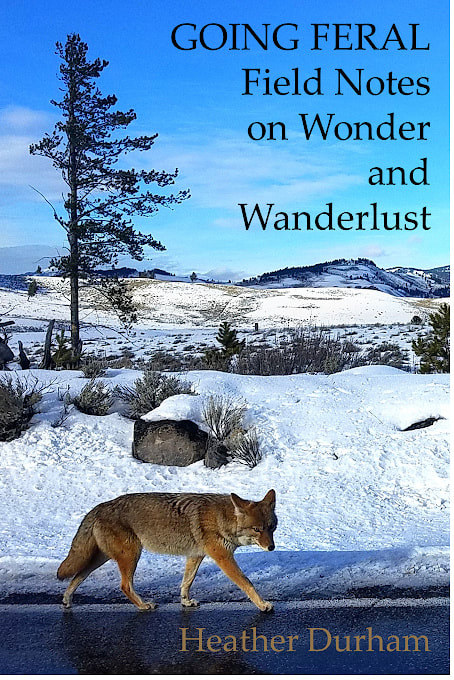To Order

Heather Durham's nature memoir in essays is an examination of a life of wandering in wild nature. With the scientific knowledge and observation skills of an ecologist and the existential inquiry of a philosopher, Heather immerses readers with all their senses in adventures, wanderings, and musings in wild places around the United States. She faces solitude on a deserted island in Maine, spelunks in bat caves in New Hampshire, chases herons on the Florida Gulf coast, and hides out with flamingos in urban Utah. She locks eyes with a cougar in Colorado, traps and bands hawks in Nevada, surveys owls in Oregon, and communes with coyotes in Washington.
As a nomadic and often reclusive introvert, Heather grapples with discomfort among her own kind and resists traditional paths to fulfillment. It is ultimately her intimate bond with the natural world wherever she roams that offers meaning, solace, and a sense of belonging both within and apart from human communities. Part reverential nature writing, part soul-searching memoir, Going Feral is the story of a human animal learning to belong to the earth.
Going Feral was named a Next Generation Indie Book Awards finalist in Nature and Environment for the 2020 book awards.
As a nomadic and often reclusive introvert, Heather grapples with discomfort among her own kind and resists traditional paths to fulfillment. It is ultimately her intimate bond with the natural world wherever she roams that offers meaning, solace, and a sense of belonging both within and apart from human communities. Part reverential nature writing, part soul-searching memoir, Going Feral is the story of a human animal learning to belong to the earth.
Going Feral was named a Next Generation Indie Book Awards finalist in Nature and Environment for the 2020 book awards.
Praise for Going Feral
“Is this loneliness for people, or for earth?” To answer, Going Feral sets out on a quest conveyed in many small epics. These are the essays kicked up by a rowdy wanderlust. . . but also won in quietness and long attentiveness to the natural world. Durham might find that she belongs in forests or in deserts, on mountain peaks waiting for raptors, or in ferny, rooty hemlock hideouts. The payoff: She sees things. Dragonfly. Butterfly. Bunny-eared bat, bison hanging out in rural restrooms, a decapitated Bambi, and more cougars than anyone has a right to. “Who am I now?”she wonders, captivated.
"A reader could be stirred up here, could be reminded to wander a little (or a lot), could be inspired to shut up and hunker down and let the awkward perfection of the wild reveal itself. Something like hope could appear. Something like spirit."
—David Oates, author of The Heron Place and Paradise Wild: Reimagining American Nature
"A reader could be stirred up here, could be reminded to wander a little (or a lot), could be inspired to shut up and hunker down and let the awkward perfection of the wild reveal itself. Something like hope could appear. Something like spirit."
—David Oates, author of The Heron Place and Paradise Wild: Reimagining American Nature
